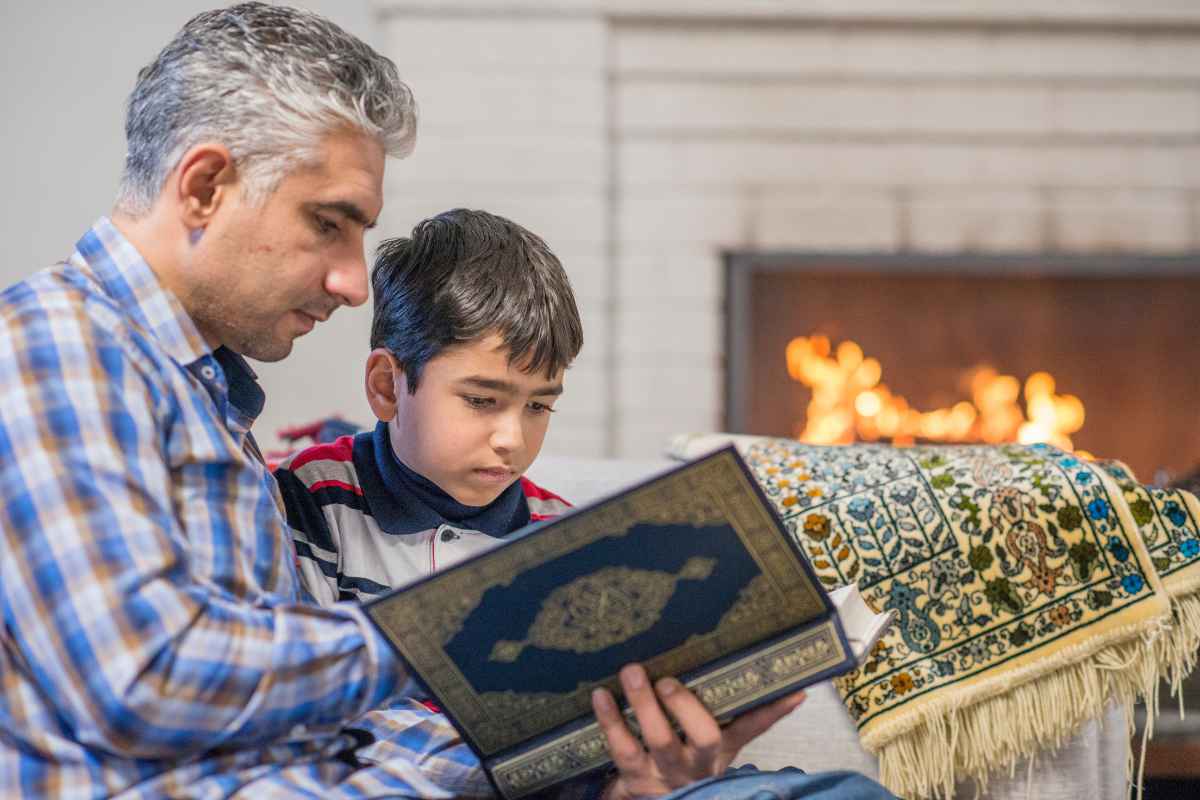Welcome, Reader, to this narratively rich and intellectually stimulating exploration titled “The Hidden Risks: 18 Critical Views on Faith-based Child Upbringing.” This is no ordinary whistle-stop tour of parenting. Instead, it’s a deep delve into the labyrinth of faith-based child upbringing, unearthing its unspoken complexities and hidden challenges.
Don the miner’s helmets, and get ready as I shine a light on critical perspectives that often remain hushed, unexplored, or conveniently ignored. So, buckle up for a lively, thought-provoking, and sometimes controversial traversal through the terrain of faith, childhood, and everything in between.
Limited Exposure to Diverse Beliefs

Faith-based upbringing often exposes children to a singular worldview, limiting their understanding of other cultures, religions, and belief systems.
Misinterpretation of Sacred Texts

Children may need more cognitive maturity to comprehend complex religious texts, which can lead to misunderstandings and misconceptions.
Societal Alienation

Children raised in highly religious homes may face difficulty fitting in with peers who do not share the same beliefs, leading to feelings of isolation.
Restricted Critical Thinking

Some faith-based teachings may discourage questioning or challenging established rules and norms, stifling independent thought.
A catholic student’s statement derived from the Joseph Rowntree Foundation, “Sometimes you follow in your mum’s and dad’s footsteps because you’re part of them,” validates this statement.
Gender Bias

Certain religions have traditional views on gender roles, which could perpetuate gender bias and inequality.
Fear and Guilt

The concepts of sin, punishment, and eternal damnation taught in some religions can cause undue fear and guilt in children.
Intimate Repression

Strict religious teachings often prohibit open discussions about s*x and intimacy, leading to confusion and guilt.
Intolerance

Faith-based upbringing can sometimes foster a sense of superiority, leading to intolerance towards those with different beliefs.
Resistance to Science

Some religious teachings conflict with scientific facts, leading to resistance or rejection of scientific knowledge.
Religious Abuse

In extreme cases, religion may be used to justify physical or emotional abuse.
Loss of Personal Identity

In highly religious environments, children may be pressured to adopt a religious identity over their individual one.
Forced Participation

Faith-based upbringing often involves compulsory participation in religious activities, regardless of a child’s interest or consent.
Unhealthy Body Image

Certain faiths promote modesty to such an extent that it may foster an unhealthy body image in children.
Delayed Emotional Maturity

Relying on faith to answer life’s complexities can hinder children’s emotional maturity development.
Reliance on Faith Over Medicine

Some faiths may prioritize prayer and divine intervention over modern medicine, potentially risking a child’s health.
Inability to Handle Doubt

A strictly religious upbringing can make it challenging for children to handle doubts about their faith later in life.
Excessive Guilt for Normal Behavior

Normal adolescent behavior may be deemed sinful, causing unnecessary guilt.
Exclusion From Social Activities

Children may miss out on regular social activities due to religious restrictions, creating a sense of exclusion.
Remember, these views aren’t universally applicable to every faith-based upbringing. They are simply some critical perspectives worth considering.
15 Harrowing Indicators of a Childhood Overpowered by Extreme Religion

Welcome to the roller-coaster ride of childhood, amplified by the adrenaline rush of extreme religion. Picture this: little Johnny’s bedtime stories are less about Goldilocks and more about the fiery depths of Hell. Or, little Susie’s first memory isn’t of her mother’s lullaby but a sermon condemning sinners to eternal damnation. Sounds intense?
15 Harrowing Indicators of a Childhood Overpowered by Extreme Religion
20 Lies You Should Never Tell Your Child

We’ve all been there, that sticky situation where a fib seems like the only way out of an awkward kid conundrum. “Yes, kiddo, the Tooth Fairy did leave you that dollar.” or “If you don’t finish your broccoli, Santa’s striking you off the nice list.”
20 Lies You Should Never Tell Your Child
The 5 Best Air Fryer Toaster Oven of 2024

Do you love fried food but hate the unhealthy consequences? If so, an air fryer toaster oven may be the perfect appliance for you!
The 5 Best Air Fryer Toaster Oven of 2024
10 Bible Stories You Learned In Sunday School That Exist In Other Religions

We can all recall the Biblical stories that were taught to us in Sunday school, which are ingrained in our minds. However, it’s worth noting that similar narratives can also be found in the sacred texts of other religions. These accounts of human spirituality have origins in various cultures and regions worldwide, spanning from the lush banks of the Ganges to the towering heights of Olympus, from the vast expanses of the Sahara to the bustling streets of ancient China. Observing how these stories intertwine to form a shared tapestry across different religions is intriguing. Join us on an exciting journey of discovery!
10 Bible Stories You Learned In Sunday School That Exist In Other Religions
Wisconsin Mother Hopeful After Court Ruling in Favor of Parents’ Rights To Know About Child’s Transition

In a significant decision that promises to influence the trajectory of parents’ rights discussions nationwide, a Wisconsin court emphatically ruled in favor of parents’ inherent rights concerning their children’s gender transitions at school.
